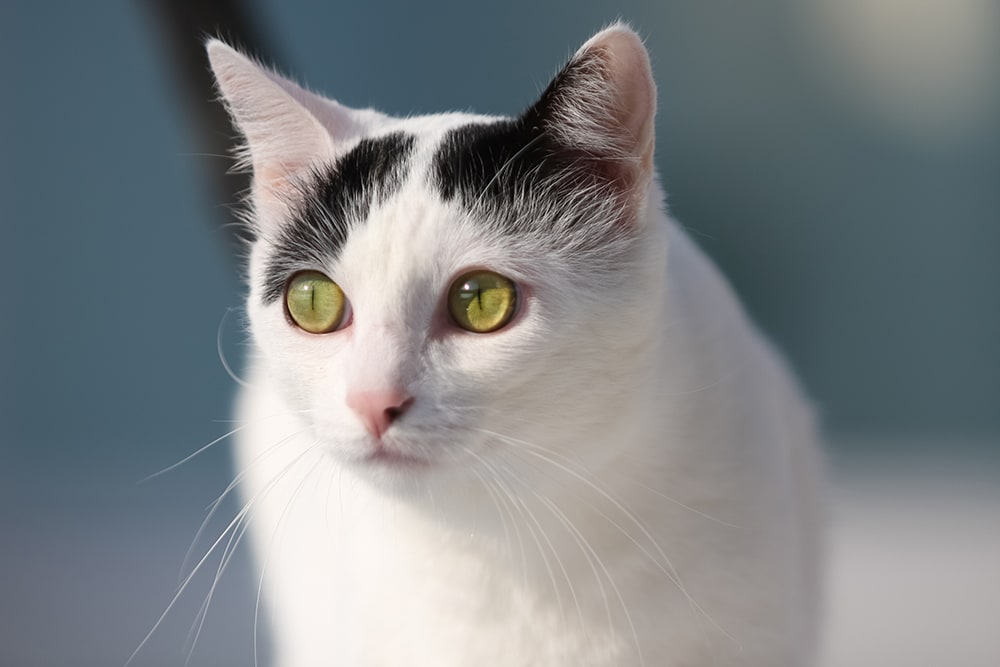How To Tell If a Cat is in Pain
Signs that a cat is in pain vary depending both upon the personality of the cat and the type of pain they are experiencing.
Most cats will show obvious signs of acute pain if they have an accident or injury but it can be much more challenging to tell if your cat is experiencing chronic pain such as pain caused by arthritis or gum disease.
Because cats instinctively hide signs of pain it is essential for pet parents to always keep a watchful eye for uncharacteristic behavior, personality changes, an unusual stride, or changes in appetite.
Signs of Pain in Cats
Cats in pain will likely display one or more of the following symptoms:
- Frequent or ongoing meowing or howling
- Litter box accidents, urinating outside of their litter box
- Tail flicking
- Won't eat or reduced appetite
- Poor grooming, scruffy looking
- Reduced energy, lethargy or lack of interest in play or going outside
- Hiding, no interest in spending time with you or other family members
- Limping
- Avoiding being handled, picked up or petted
- Behavioral changes such as refusing to jump onto a bed or furniture that they typically love to be on
- Irritable mood, short-tempered with people or other pets including
- Uncharacteristic hissing, growling or spitting
- Unusual vocalizations (meowing more than usual, crying)
- Excessive grooming
- Panting
- Patchy fur
Ways That Your Cat's Posture & Body Language May Change if They Are in Pain
Cats in pain will often display changes in body language. In some cases, the body language changes of a cat in pain will be very noticeable but often times these changes are more subtle. Our vets recommend always monitoring your cat's overall demeanor, stance, and gait so that any changes from their normal will be easily spotted.
- Body language changes related to pain in cats include:
- Tense looking body
- Crouched or being hunched over
- Head lowered
How Pain Could Be Expressed in Your Cat's Face
While many cats show little or no change in their facial expression while experiencing pain, some cats are very expressive. If your cat is in pain they might:
- Squint or close their eyes tightly
- Flatten their ears so that they are pressed to the sides or back of their head
- Project an overall facial appearance of tension with a tight mouth
When To Seek Veterinary Care For a Cat In Pain
Often signs of pain in cats are missed until the cat's condition is advanced. When it comes to your cat's long-term health it's always best to err on this side of caution.
If your feline friend is displaying signs of pain contact your vet right away to schedule an examination, or visit your local after-hours animal hospital. To help preserve your cat's good quality of life pain management, and treatment of painful conditions early are essential.
Note: The advice provided in this post is intended for informational purposes and does not constitute medical advice regarding pets. For an accurate diagnosis of your pet's condition, please make an appointment with your vet.
Do you think that your cat may be in pain? If so, it's time to head to the vet. Contact our Hunterville vets right away to book an examination for your feline friend.
Looking for a vet in Huntersville and Mecklenburg County?
We're always accepting new patients, so contact our veterinary hospital today to book your pet's first appointment.
Related Articles View All
Is there a natural treatment for hyperthyroidism in cats?
Are you concerned about the side effects of your cat's hyperthyroidism treatment? Are there any natural remedies for hyperthyroidism in cats? Find out in today's blog post.
Treatment for Stomatitis in Cats
Feline stomatitis is an oral health condition that causes inflammation and ulcers in your cat's mouth. Here, you will find information about the symptoms of this painful condition and how it can be treated.
Are cat and dog Wellness Plans worth it?
If you have a cherished four-legged friend you may be wondering if paying a Pet Wellness Plan is worth it. In today's post, our Huntersville vets explain what makes Pet Wellness Plans a great deal for pet parents and their furry friends.
Hyperthyroidism Symptoms in Cats
Hyperthyroidism is a condition that occurs if your kitty's thyroid hormone levels become too high. Left untreated, this common condition in cats can lead to some very serious health problems. Our Huntersville vets explain the causes, symptoms, and treatment for hyperthyroidism in cats.

